Poet, painter create art to help Afghan refugees
Book dives into artists' perception of Afghan women amid Taliban takeover
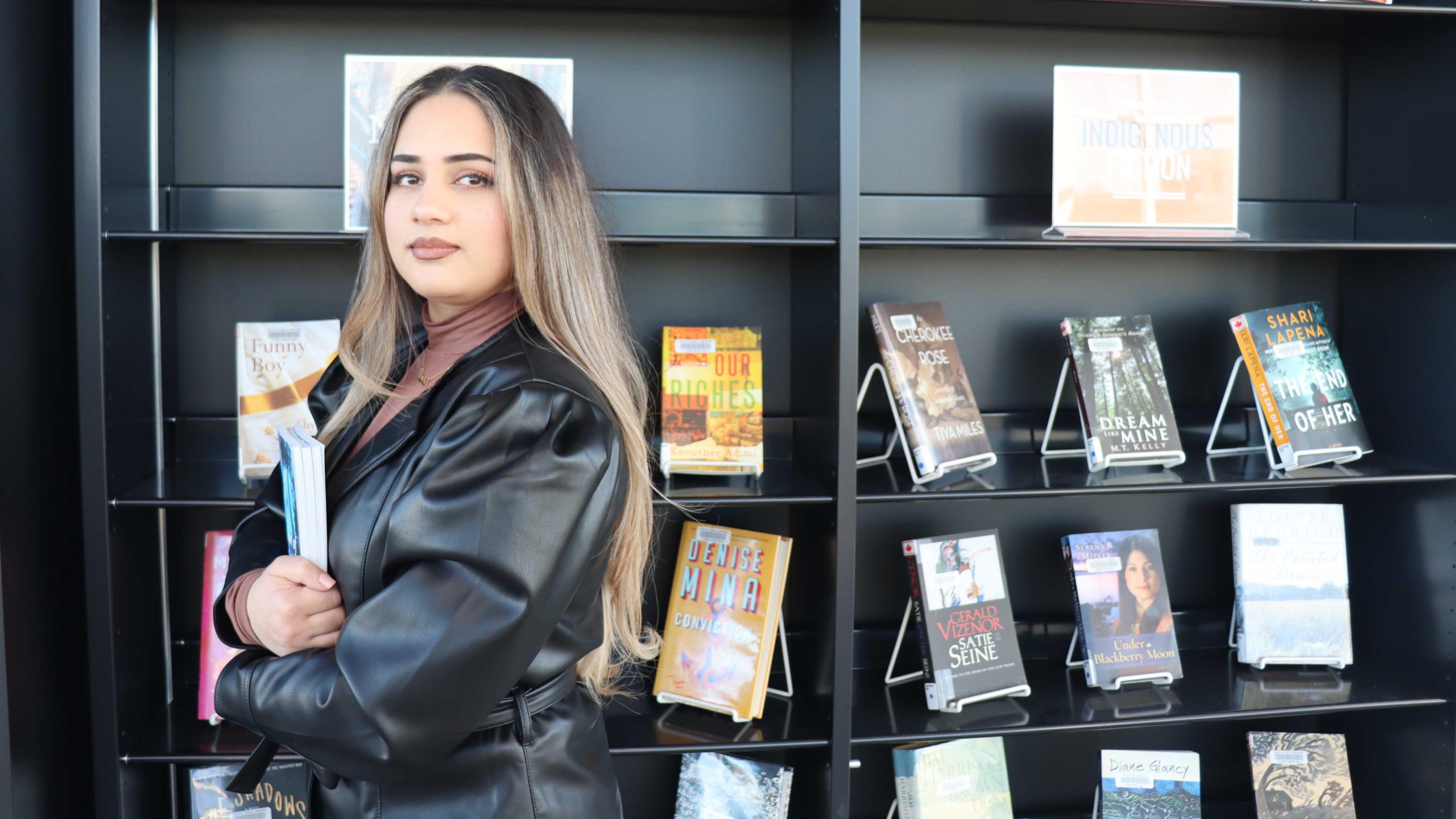
caption
Tamana Saqi poses with her book, Shadow of my Knight, prior to launching the book Saturday night at Halifax Central Library.Tamana Saqi wrote a book of poems to heal Afghan women.
“I want people to know what Afghan women are experiencing,” Saqi said. “And I want people to know that that experience is pain.”
Saqi, 25, came to Halifax when she was 18. She met Mahnaz Roshan, an Iranian-Canadian artist who was a refugees’ adviser at the time. They remained friends since.
After the Taliban took over Kabul, Afghanistan’s capital, in August this year, Saqi and Roshan decided to combine artistic forces and produce a book together. Saqi wrote the poetry, while Roshan painted the illustrations.
They launched their book Shadow of my Knight on Dec. 4 at Halifax Central Library. At the event, Saqi read selected poems, and Roshan live-painted an illustration depicting one of Saqi’s poems.
Both artists say their book focuses on what it means to be a woman in places where women don’t have a voice.
“The book is very much about me, and my experience, but it is also about what I have seen in other women, and what I have seen women in my community go through,” Saqi said.
“It is about stories of women that I have seen struggle with trauma and hate and love.”
To Saqi, the experience of seeing her hometown succumb to the Taliban was “extremely painful.” She said seeing forces come into Kabul and take over the city, and then take control of women and children, was “very surprising.”
“When I saw the Taliban had taken over Kabul, I was like, ‘No, that’s not real.’ I just did not believe it. Afghanistan was getting bigger and better. Women were getting opportunities to work. They had opportunities to go to school. And suddenly, they came in, and took all of that away. It was like they took us back in time. And it hurt me deep inside.”
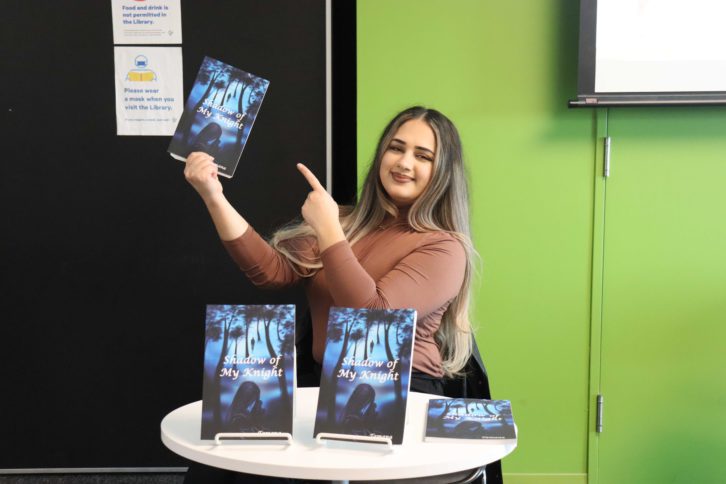
caption
Tamana Saqi points at her book before reading excerpts at Saturday’s event.But why write a book about it?
Saqi said art is twofold. She said art creates a record of the emotional history that unfolded in Kabul. But it also lets other women see they’re not suffering alone.
“There’s a lot that is happening here,” Saqi said about her book. “Art is to feel people’s pain and trauma, what they have been through, but it is also about recording history from a woman’s point of view. So that later in life, generation after generation, someone can point at this and say, ‘Oh, something women experienced happened here.’ ”
Saqi said the Taliban affected her personally. Her mother, Aisha Abdullah, was restricted from going to school because the Taliban dominated Afghanistan when she was a girl.
“The stories my mother told me were painful. They were horrible, and I don’t want that for my people,” Saqi said.
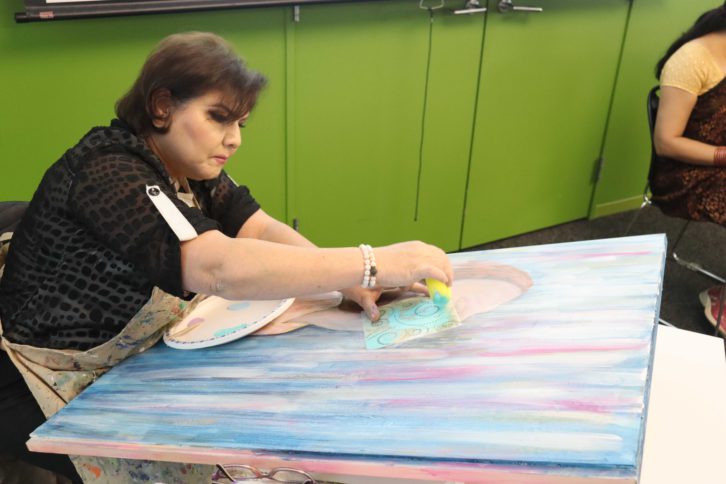
caption
Mahnaz Roshan live-paints one of her pieces at the book launch.Roshan got involved in the project because she also believes women in Afghanistan are suffering unnecessarily.
“As a woman, it is a very hard experience to understand,” Roshan said. “I mean, even before this terrible thing took over, women had already lots of difficulties, with not that much freedom to study or to be who they want to be.”
“Now, they have it worse. Nobody should dictate them what they should do or be, and it’s horrible what has happened.”
While Roshan recognizes the pain, she said it’s imperative to focus on positivity, and on solutions that can fix the problem.
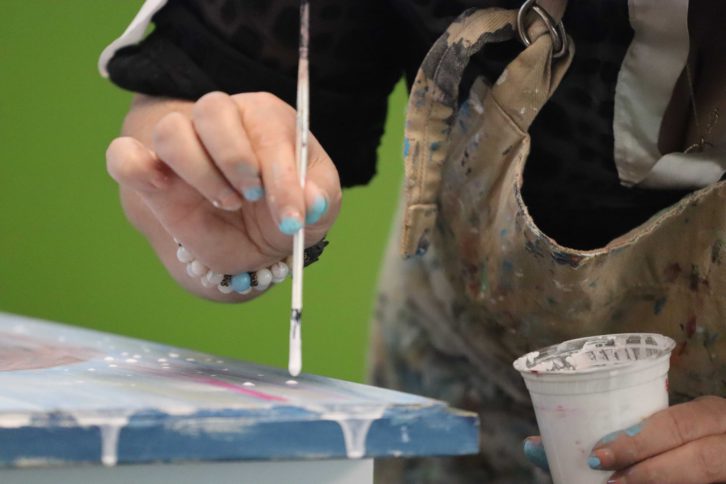
caption
Mahnaz Roshan adds details to her painting at the book launch.“Instead of focusing on that part,” Roshan said. “I decided to focus on what I can do here in Canada, in Halifax.”
So she started helping immigrants to Halifax settle in their new city.
Saqi, who now works as an adviser at Immigrant Services Association of Nova Scotia, also believes helping refugees is essential to avoid suffering.
She said for every book she sells, she will donate to organizations that help Afghan women.
“Refugees do not need to just be given an entry into Canada,” Saqi said. “They need an entire infrastructure. They need access to education. And guidance to integrate to an entirely new, and fairly different culture. Telling them to just come in is not enough.”
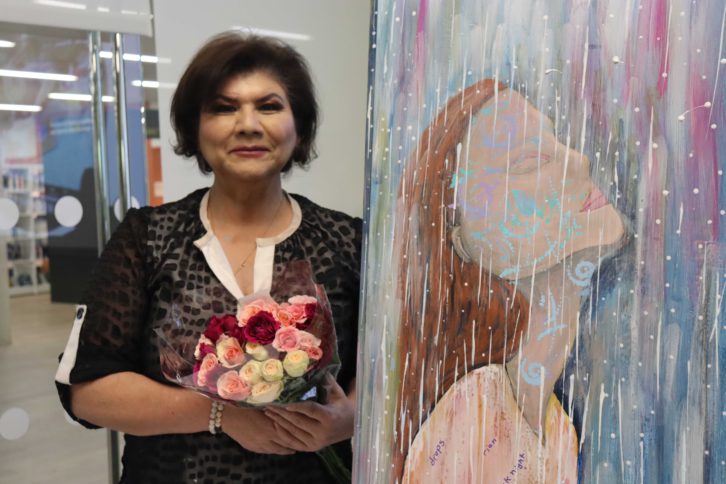
caption
Mahnaz Roshan presents her painting after her live-painting performance.About the author

Abel Rangel
Abel Rangel is a screenwriter and journalist working and living in Halifax, N.S. He earned a master’s degree in transgender studies at New...

N
Neliy